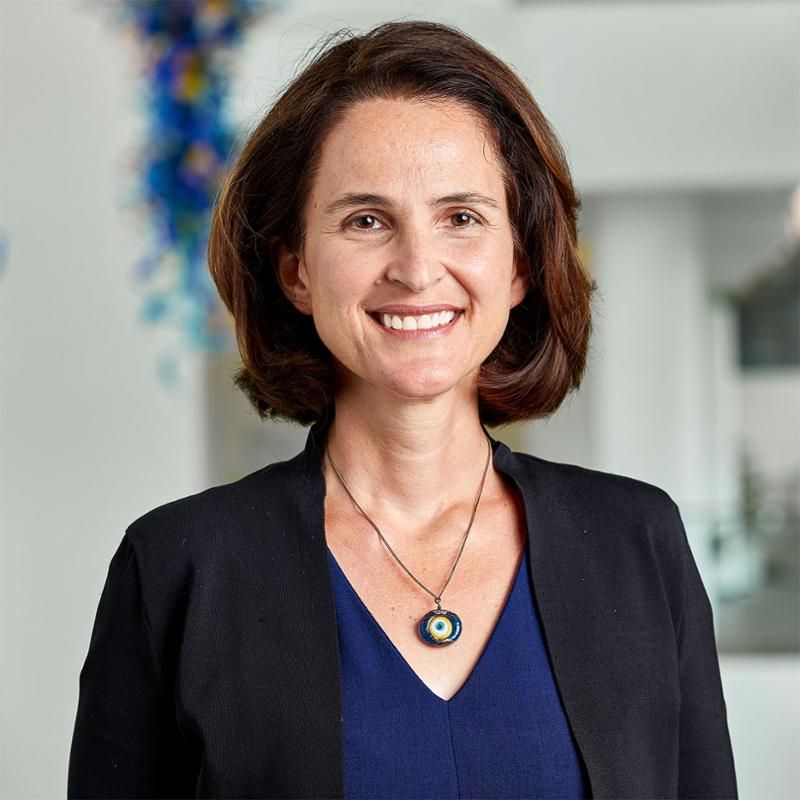 The Ray C. Anderson Center for Sustainable Business (“Center”) invites you to the next talk in the Business, Environment, and Society Speaker Series. The Spring 2022 series focuses on the circular economy. Beril Toktay, Brady Family Chair in Management and faculty director of the Center, will present “International Considerations in Responsible Waste Management.” The event is open to the public.
The Ray C. Anderson Center for Sustainable Business (“Center”) invites you to the next talk in the Business, Environment, and Society Speaker Series. The Spring 2022 series focuses on the circular economy. Beril Toktay, Brady Family Chair in Management and faculty director of the Center, will present “International Considerations in Responsible Waste Management.” The event is open to the public.
Billions of tons of solid waste are generated every year globally, estimated at 60M tons of electronic waste, 730M tons of medical waste, 1B tons of hazardous waste, and 2B tons of municipal solid waste (World Bank Group 2018). For this talk, Toktay will draw on two papers addressing strategies for managing two types of solid waste–both that which is fit for value-added recovery as well as that which is unwanted and potentially detrimental to public health and the environment.
When it comes to waste (either with or without value), important international considerations are at play. While the export of waste with recoverable value can support humanitarian aid and contribute to local economic development abroad, some pitfalls must be avoided. For example, when medical surplus is donated but fails to match the needs of the intended recipient, the discarded goods may cause environmental harm in the country to which they have been exported. Similarly, e-waste with reusable or recoverable parts can add value; however, hazardous materials may harm the health of workers recycling the e-waste locally. This talk will view the topic through a regulatory lens and also provide best practices and tools that can help organizations avoid the downsides and maximize the benefits of waste management.
Questions that will be addressed include:
- How can medical surplus recovery organizations (MSROs) overcome a challenging supply chain to deliver the right medical product to the right recipient healthcare facility?
- What impact does optimized medical surplus recovery have on the global issue of waste management?
- What are the respective impacts of anti-dumping and anti-export regulations in waste recovery chains?
Links to papers:
“Truthful Mechanisms for Medical Product Surplus Allocation” (Zhang, Atasu, Ayer, Toktay) (This paper is the subject of a Sustainable Business Insights research brief.)
“Treat, Dump, or Export? How Domestic and International Waste Management Policies Shape Waste Chain Outcomes” (Wijnsma, Lauga, Toktay)
Speaker Bio:
Beril Toktay is professor of operations management and Brady Family Chairholder at Georgia Tech Scheller College of Business. Her primary research areas are sustainable operations and supply chain management. Toktay’s research has been funded by several National Science Foundation grants and has received distinctions such as the MSOM Society’s 2015 Management Science Best Paper in Operations Management Award, the M&SOM 2019 Responsible Research Award, and the 2021 M&SOM Best Paper Award. She became a distinguished fellow of the MSOM Society in 2017 and received the MSOM Distinguished Service Award in 2018. She is the founding faculty director of the Ray C. Anderson Center for Sustainable Business. The Metro Atlanta Chamber of Commerce selected her as a finalist for the 2019 E3 Impact Award that recognizes “visionary individuals advancing sustainability in Atlanta.”
Stay Connected:
Subscribe to email updates from the Ray C. Anderson Center for Sustainable Business
About the Ray C. Anderson Center for Sustainable Business:
The Ray C. Anderson Center for Sustainable Business was founded in 2013 to act as a catalyst and connector, bringing together students, research faculty, companies, and entrepreneurs to create an environment where business-driven solutions to sustainability challenges can take shape and thrive. In all, Scheller provides students unparalleled breadth in environmental sustainability, ethics, corporate social responsibility, social entrepreneurship, and values-based leadership.